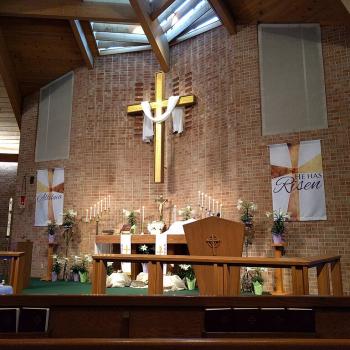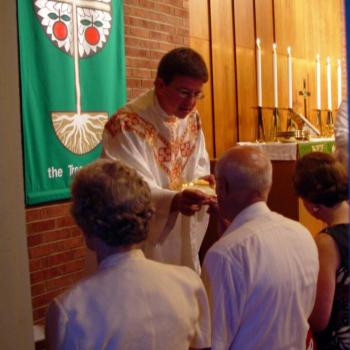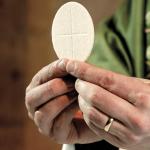The post about God & the State led to even more discussion of a previous post regarding whether marriage is primarily the business of the church or of the state. I wonder if we could set aside the topic of marriage for awhile and just consider the teaching that God works through the state and the civil order in general.
I don’t expect non-Lutherans to believe what Lutherans do. After Manxman and Webmonk are finished mocking and deriding Lutheran theology, they are welcome to explain how they view the relationship between God and the state. But some of you Lutherans are sounding like anabaptist separatists, whether Amish pacifists or Muntzerian revolutionaries, as if the state were at best a necessary evil, but an intrinsic evil nonetheless.
The force of the article by Cameron MacKenzie (a board member of the Cranach Institute!) is that Walther’s view that the state can have no authority over the church is not necessarily the full summation of Two Kingdoms theology. If anything, Walther underplayed state authority compared to Luther and the Confessors. Recall that Luther called on the secular arm (the German princes) to reform the church (over the authority of the Pope). And certainly Lutheranism has existed in state churches. I remain a Waltherian opposed to state churches, but we are confessionally obliged to see the state, in principle, as a positive good.
It remains under the moral law and the authority of God and His created order, so that we can indeed criticize its evils, work for its reform, and watch it come to ruin when it violates what God has ordained. Just writing it off will mean, in practice, passively accepting its dysfunctions.
Also, I don’t recall anyone in the comments relating the state to vocation; that is, to how God is present in and works through the state to care for His creatures.
This is from Article XVI of the Apology of the Augsburg Confession:
The Sixteenth Article the adversaries receive without any exception, in which we have confessed that it is lawful for the Christian to bear civil office, sit in judgment, determine matters by the imperial laws, and other laws in present force, appoint just punishments, engage in just wars, act as a soldier, make legal contracts, hold property, take an oath, when magistrates require it, contract marriage; finally, that legitimate civil ordinances are good creatures of God and divine ordinances, which a Christian can use with safety. . . .
Meanwhile it permits us outwardly to use legitimate political ordinances of every nation in which we live, just as it permits us to use medicine or the art of building, or food, drink, air. Neither does the Gospel bring new laws concerning the civil state, but commands that we obey present laws, whether they have been framed by heathen or by others, and that in this obedience we should exercise love.
All of these civil and even secular matters are “good creatures of God.” They are “divine ordinances” in the created order. They are ours to use just as we make use of medicine, buildings, food, drink, and air.
















